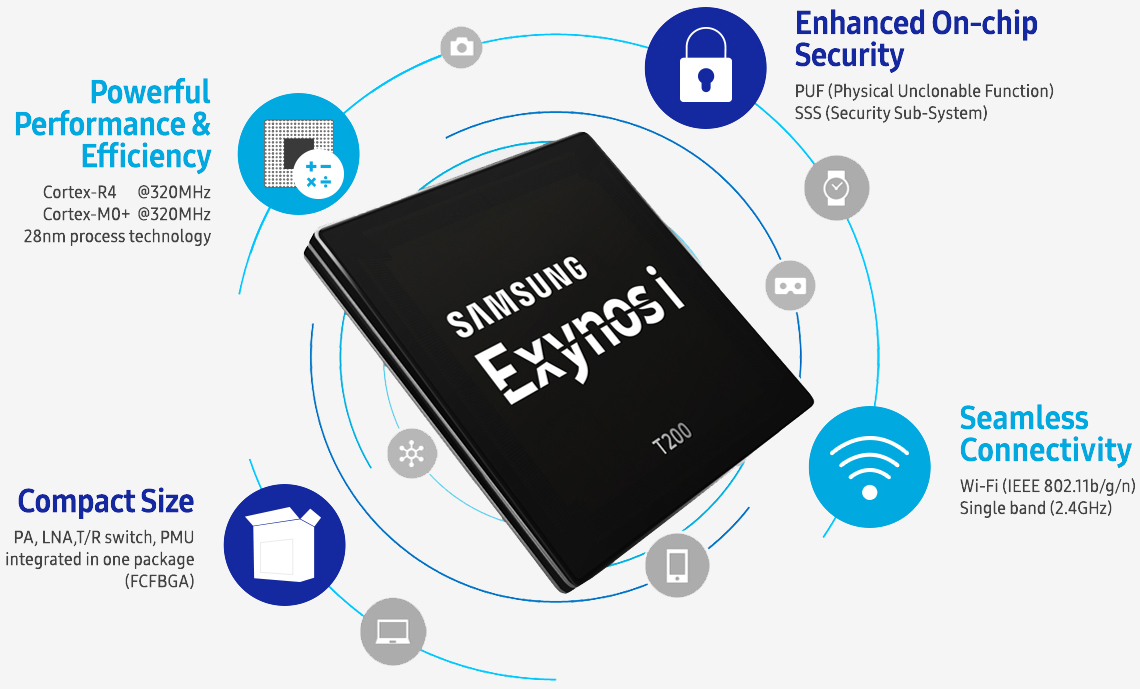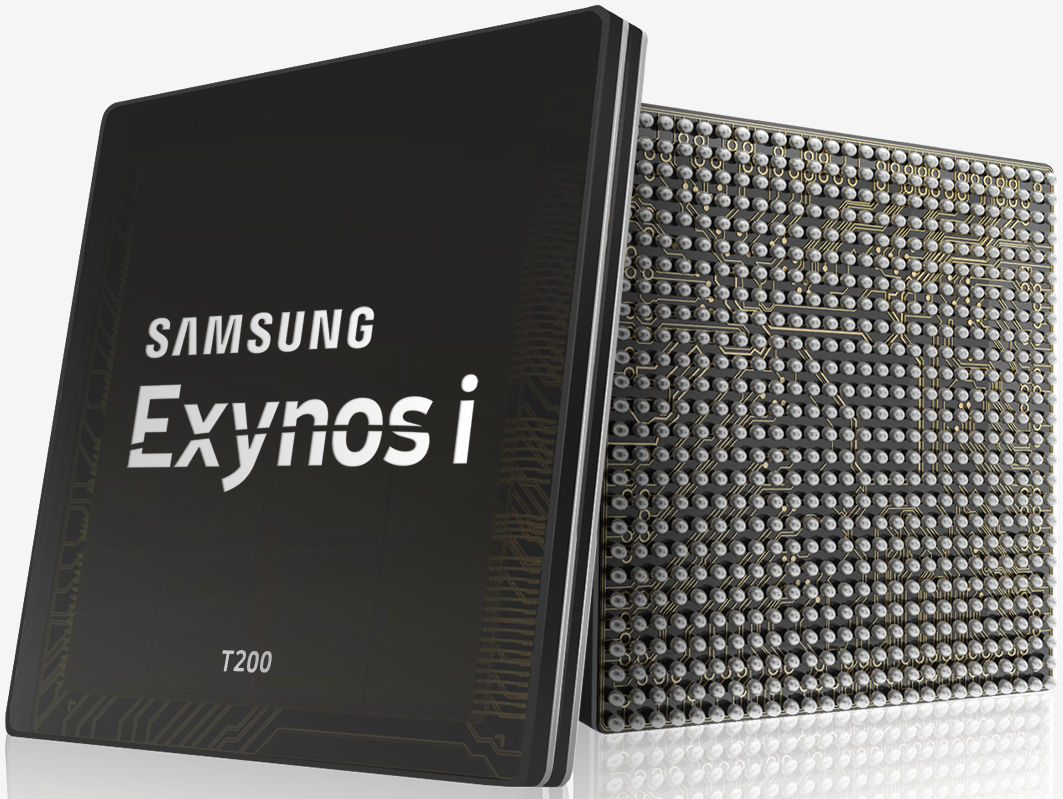Samsung recently announced that its first Exynos-branded Internet of Things (IoT) processor has entered mass production. The Exynos i T200 is a low-power chip built on a 28-nanometer (nm) High-K Metal Gate (HKMG) manufacturing process that packs both a Cortex-R4 processor and a Cortex-M0+ processor.
In terms of connectivity, the chip supports 802.11 b/g/n single-band (2.4GHz) Wi-Fi as well as IoTivity, an IoT protocol standard from the Open Connectivity Foundation that enables seamless interoperability between various IoT devices.

Samsung's new IoT chip further features a designated security management hardware block called the Security Sub-System (SSS). Secure data storage and device authentication management is handled by the Physical Unclonable Function (PUF) IP without the need to fuse a key onto silicon. Sammy says this approach provides a much higher level of security versus a conventional one-time programmable solution.
Ben Hur, Vice President of System LSI marketing at Samsung Electronics, said the Exynos i T200 is optimized to deliver both the performance and security demanded in the IoT market. With various Exynos solution offerings, he added, Samsung will deliver further differentiated value to not only mobile devices but also non-mobile spaces including automotive and IoT.
Internet of Things devices are ripe for growth. Experts anticipate as many as 200 billion IoT devices to be in use by 2020 which equates to roughly 26 smart objects for every human on the planet.
